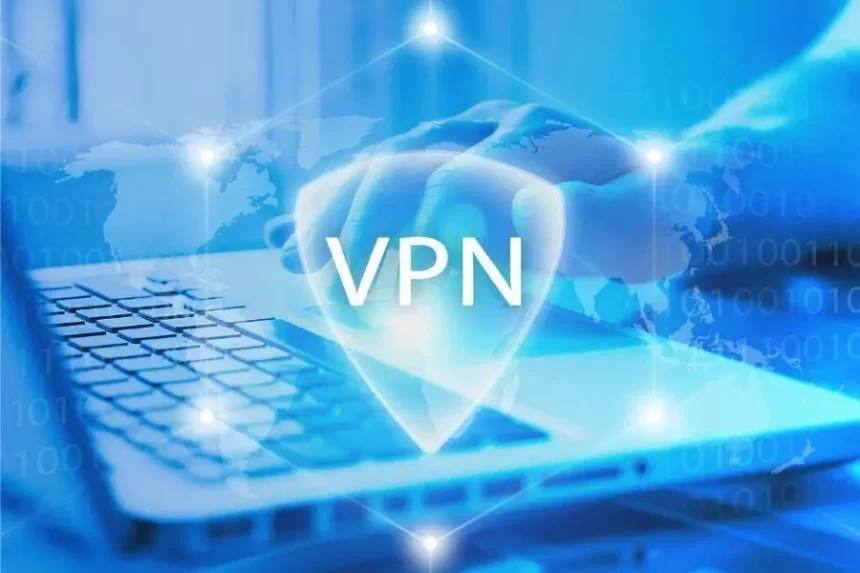In the age of digital information, privacy is a valuable asset. With the rise of cyber criminals and data breaches, it has become increasingly important to protect your online activity and personal data. A free VPN is a great option for those looking to stay safe while browsing the internet, but is it really worth it? In this article, we will explore the pros and cons of free VPNs to help you decide if they are the right choice for you. We will look at the features and limitations of free VPNs, the risks associated with using them, and the benefits they can bring. By the end of this article, you will have a better understanding of free VPNs and be able to make an informed decision about whether or not they are the right choice for you.
What is a free VPN?
A free VPN is a service that allows you to browse the internet securely and anonymously by routing your connection through a remote server. This makes it harder for third parties to track your browsing activity and see your IP address. A VPN also allows you to access geo-restricted content from all over the world, such as streaming services or websites like Netflix or BBC iPlayer. VPNs can be used on any device, with or without internet connections. All you have to do is download the app on your device, log in, and select a server. And because they encrypt your data, they keep your information safe from prying eyes. Free VPNs are also referred to as “freemium” VPNs, as they’re often supported by advertisements or in-app purchases. Some free VPNs do not log users’ data, IP addresses, browsing history, or other information. However, it is important to note that not all free VPNs are created equal. Some free VPNs will log your data or sell it to third parties. Others won’t offer the protection or speed you need to stay secure online. You should be careful when choosing a free VPN and make sure to read the terms of service, privacy policy, and reviews. Free VPNs aren’t always trustworthy, so it’s important to know exactly what you’re getting into before signing up. Unfortunately, not all free VPNs are worth it.
Pros of free VPNs
One of the main pros of free VPNs is that they are cheap. You can sign up for a free VPN and get the basic service for free, without paying a monthly subscription fee. Compared to paid VPNs, free VPNs are much more affordable and accessible to all types of users, regardless of your budget. Another pro of free VPNs is that they are easy to set up and use. There’s no complex configuration process or installation required – all you have to do is download the app from your device’s app store, log in, and select a server. Free VPNs are great for beginners and those who are new to VPNs, as they are simple and easy to use. This makes them a good option for casual internet users who don’t want to go through a long, complicated process to protect their privacy.
Cons of free VPNs
The main con of free VPNs is that they don’t offer the same level of protection and privacy as paid VPNs. The free VPN service itself may be secure, but it’s usually provided by third parties whose sole purpose is to make money. These VPNs are often supported by advertisements, in-app purchases, or data collection, and do not have your best interests in mind. Another con of free VPNs is that they are often unstable, slow, and difficult to use compared to paid VPNs. This may be due to a number of factors, including poor server selection, poor connection speeds, or a lack of technical support. Free VPNs don’t always have the funds necessary to provide fast and reliable servers, so even if you’re using a secure VPN, you may be experiencing slow speeds.
Features and Limitations of free VPNs
The features and limitations of free VPNs vary depending on the individual provider. However, you should keep in mind that not all free VPNs are created equal. Some free VPNs will log your data or sell it to third parties, while others may have poor connection speeds, bad customer support, or be difficult to use. Before signing up for a free VPN, make sure to read the terms of service, privacy policy, and reviews to make sure it is worth it. Another limitation of free VPNs is that they usually have data caps or bandwidth limitations, as well as a limited number of servers to connect to. They may also be more prone to going down due to increased server traffic.
Risks associated with using free VPNs
One of the main risks associated with using free VPNs is that you don’t know who you can trust. Third-party VPNs don’t have the same transparency as paid VPNs, so you may not know what you are signing up for. These providers could log your data or sell it to third parties without your knowledge. They may also be insecure and make it easier for hackers to access your data. This can be especially problematic if you’re connecting to public Wi-Fi at a coffee shop, airport, or library. Another risk associated with free VPNs is that they aren’t as robust or secure as paid VPNs. While free VPNs may be a good option as a short-term solution, they aren’t a long-term solution because they usually don’t have the same level of security that paid VPNs have.
Benefits of using free VPNs
Free VPNs are a great option if you are on a tight budget or don’t want to commit to a monthly fee. Many people only need a VPN for a short amount of time, such as for vacations, business trips, or visiting friends and family abroad. A free VPN is a great and affordable solution for these situations. Free VPNs also give you a chance to try out a VPN and see if it’s something you want to be using long-term. Another benefit of free VPNs is that they can help you stay up-to-date with technology and improve your skills. Using free VPNs is a fun way to learn more about technology, internet security, and how VPNs work. It can also help you learn how to use different apps on different devices, and it can be a great way to pass the time.
Comparisons of free VPNs
When comparing free VPNs, you should look at the following:








